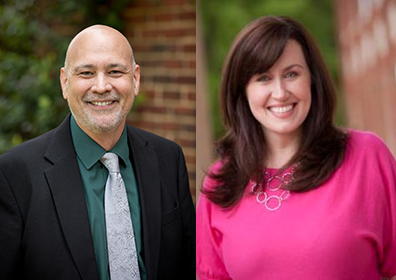
The weather on Meredith College’s Raleigh, N.C., campus is often mild, but from ice and snow to hurricanes—like Hurricane Dorian, which threatens us now—we’ve weathered our fair share of storms.
We used to get calls and emails from students and faculty alike anytime bad weather approached asking if we knew and whether we had a plan. By changing how our administration responds to bad forecasts, we’ve calmed nerves around inclement weather—and learned some lessons that campus administrators can apply to any climate challenge.
Working as a team
To improve planning and communication, the executive leadership team created an inclement weather team comprised of representatives from academics, facilities, dining services, security, communications, student life, and events. As part of this team, the Provost’s Office makes decisions about closings and cancellations, and marketing and communications distribute the messages, so it streamlines the process from decision-making into disseminating the message to work together from the start.
Whenever the forecast looks grim, we notify each other of our availability, and if any one of us is unavailable, we have someone fill in and notify the rest of the team. We draft messages for all possible outcomes as soon as possible so come decision time we’re ready to distribute the appropriate alerts.
Using the right modes of communication
Weather alerts are no different from other forms of communication: you have to reach your audience where they are. We use multiple channels of communication, and that redundancy is key to reaching everyone.
To keep students learning when classes can’t convene, we’ve developed a robust set of alternate instruction options.
But we don’t have so many channels that it becomes unwieldy. Over the last four years, we’ve phased out an outmoded information phone number. We do contact local TV and radio, post on social media and send weather alerts through our emergency alert system. Like many such systems, the user decides how to receive alerts, meaning we’re contacting our constituents how they prefer, increasing their chances of receiving our message.
Keeping students informed
The dual purposes for our team are to keep our campus community safe and to alleviate anxieties among students, faculty and staff. When inclement weather looms we immediately send a message noting we are monitoring the weather and giving the time by when a decision will be made about schedule changes.
Knowing the administration is paying attention relieves concern and alerts our constituents to be attentive to that forthcoming decision. They trust we’ll inform them within the timeframe given in our initial message.
Precision in phrasing
In addition to our early notices, our whole way of phrasing messages has evolved. Each message concludes with when the next message will be sent, and the final message regarding a particular weather event is always identified as such. Our new phrasing, more than anything, has reduced anxiety on campus during the uncertain times before a storm. Our new message conventions allow us the flexibility to gather as much information as possible before deciding without leaving our constituents hanging.
Additionally, we emphasize in our messages that people must make the best decision for themselves. About half of our students commute, some from quite far. We ensure our commuters know we don’t expect them to risk life and limb to get to class.
Making up classes
Closing the campus shouldn’t stall education. To keep students learning when classes can’t convene, we’ve developed a robust set of alternate instruction options. Some students have even said they have more work when classes are canceled.
We also have designated make-up periods noted in the online community calendar that faculty can opt to use. These pre-planned makeup sessions become essential when, for example, the same class periods are affected multiple times during a semester.
Most of us think of the classic snow day when we think of school closings, but throughout much of the United States, we experience four seasons, each with their own inclement weather concerns. As a team, we have gotten much better at making and communicating inclement weather decisions. Our campus is safer and calmer as a result.
Matthew Poslusny is the senior vice president and provost of Meredith College in Raleigh, N.C. Kristi Eaves-McLennan is vice president for marketing and communications at Meredith.

